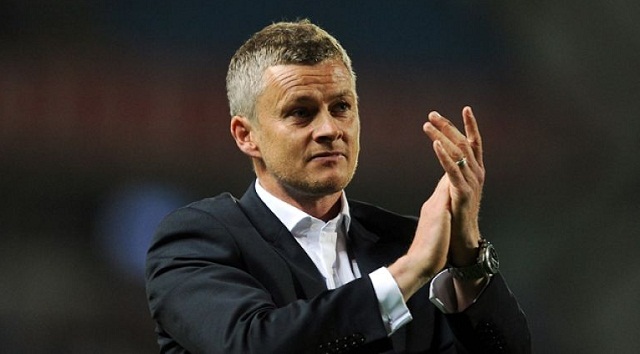
London, United Kingdom | AFP | Ole Gunnar Solskjaer etched himself into Manchester United folklore in the manic closing seconds of their Champions League win against Bayern Munich in 1999.
Alex Ferguson’s team had wrapped up the Premier League title and won the FA Cup but their dreams of a unique treble appeared to be over as they trailed 1-0 at the Camp Nou going into added time.
What happened next defied belief. First, fellow substitute Teddy Sheringham grabbed an equaliser and then Solskjaer poked home the winner following a flick-on from Sheringham, sparking scenes of pandemonium.
The striker joined United from Norwegian club Molde in 1996 for a bargain £1.5 million ($1.9 million) and played a key role in one of the most successful spells in the club’s history, scoring 126 goals in 366 games.
On the pitch, the Norwegian, nicknamed the “Baby-faced Assassin”, became an embodiment of United’s never-say-die spirit, often scoring late goals when points or trophies looked to have been lost.
Now the new interim United manager has been handed the chance to add another chapter to his Old Trafford story, given the task of turning around the club’s season after a disastrous spell under departed boss Jose Mourinho.
“Manchester United is in my heart and it’s brilliant to be coming back in this role,” said the 45-year-old, who has a daunting task ahead of him.
– Super sub –
Many of Solskjaer’s goals came from the substitutes’ bench, including four in 12 astonishing minutes against Nottingham Forest in an 8-1 win in February 1999.
“Even though I’m a humble lad, I don’t think there is any better finisher than me, still,” he previously told MUTV. “The better players I had with me, the better I was.
“I was a poacher, sniffing goals out, and the better I got to know Giggsy (Ryan Giggs), Becks (David Beckham) and Eric Cantona, plus all the other great players I played with, they created chances for me.”
Ferguson described Solskjaer, who won six Premier League titles at Old Trafford, as one of the best finishers he had worked with and praised his patience in sharing striking duties at United with a string of other top forwards.
“Ole was absolutely ridiculous from the bench,” said former United teammate Andy Cole.
“He was a connoisseur of the game and he used to watch from the bench to see how he could hurt people. He picked out weaknesses to exploit.”
Solskjaer lost his battle with persistent knee problems in 2007 before becoming the club’s reserve-team manager.
He moved back to his native Norway to become manager of Molde for the 2011 season, winning the league for the first time in the club’s history the same year and repeating the feat in 2012, also lifting the Norwegian Football Cup in 2013.
He was announced as manager of Cardiff City in January 2014 but failed to save the club from relegation from the Premier League, leaving in September of that year.
He returned to Molde in October 2015 and his team finished as runners-up in the league in 2017 and 2018.
 The Independent Uganda: You get the Truth we Pay the Price
The Independent Uganda: You get the Truth we Pay the Price



